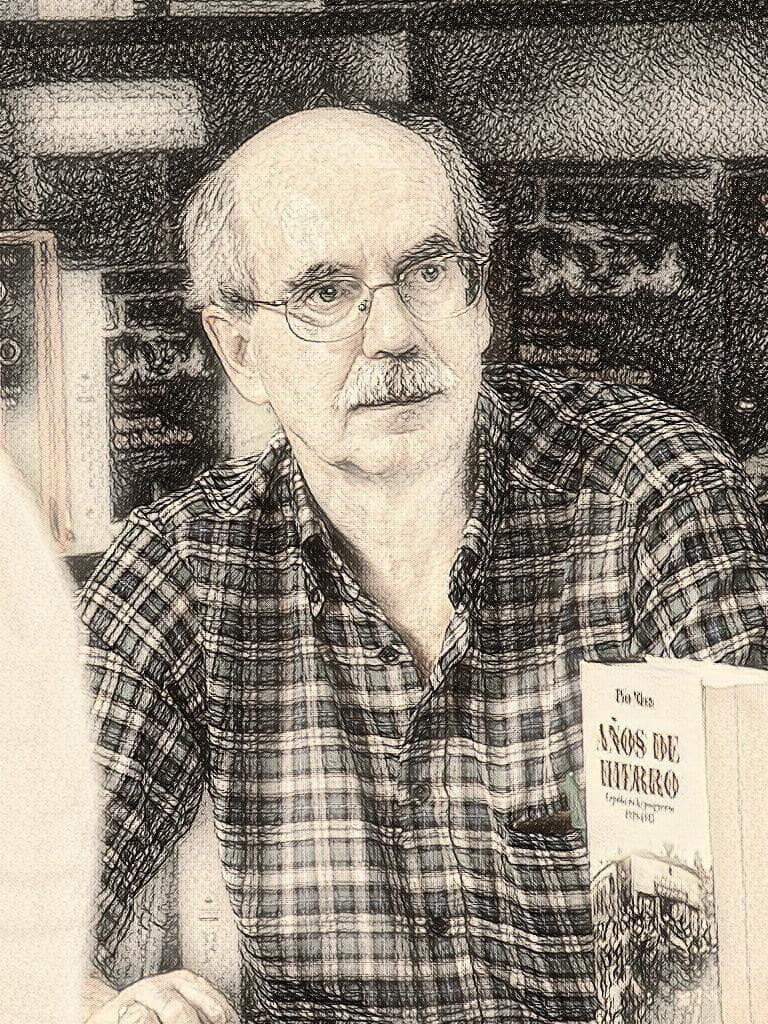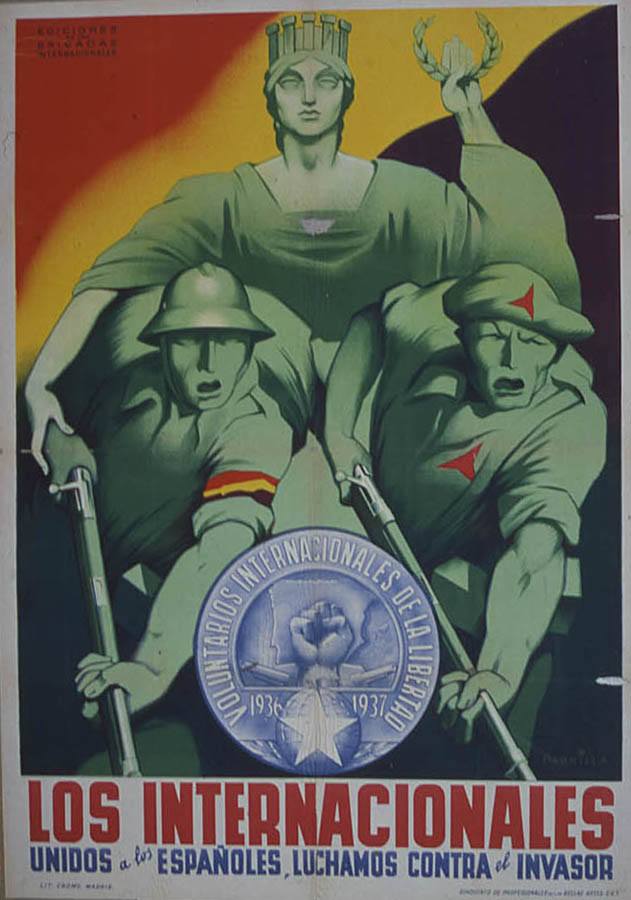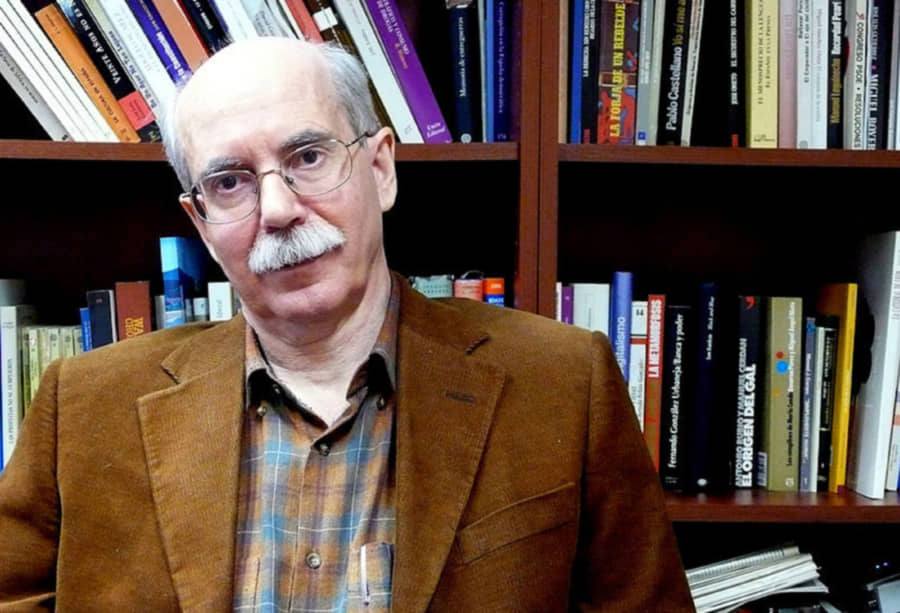The attentive observer will perceive a tone of hysteria and panic in the reaction, in France as in Spain, to the interview in Le Figaro Histoire (summer 2022), published on the occasion of the French translation of Los Mitos de la Guerra civil [Les mythes de la guerre d’Espagne, 1936-1939 (Éditions L’Artilleur)—Myths of the Spanish Civil War]. A reaction of anger and indignation, which is meant to intimidate (“how dare Le Figaro Histoire” give a platform to a “liar,” a “falsifier,” and worse, “a political scoundrel”). But there’s never a trace of rational criticism; or just as often an embarrassed silence.
The reason for this attitude is understandable. If what The Myths of the Spanish Civil War says is true, the dominant discourse in Spain, France and Europe about this war, its meaning and its historical consequences is false—which opens up new hypotheses, and damages many vested interests. The problem for the supporters of the dominant, mainstream discourse, however, should not be complex: it would be enough for them to highlight two or three key points of my book and to demolish them with data and arguments. But nothing like that has happened so far, except, as I say, silence on the part of some and insults and intimidation on the part of others. The impression that emerges is that these “critics” have not even read the book, which, according to them, is “Franco’s propaganda” and “says nothing new,” despite its enormous success in Spain and now in France. So let me give some explanations here.
Between 1999 and 2001, I published the trilogy Los orígenes de la guerra civil [The Origins of the Spanish Civil War], Los personajes de la República vistos por ellos mismos [The Personalities of the Republic as seen by Themselves], and El derrumbe de la República y la guerra [The Collapse of the Republic and the Spanish Civil War]—the result of nine years of work. Since these three books can be very difficult to read for the general public, since they are full of archival notes, bibliographic references, press documents, minutes of the Cortes, etc., I thought that a more “popular” or popularized summary of the three would be useful.
The summary, which constitutes The Myths of the Spanish Civil War, was conceived according to an original method of exposition, in two large parts, which seemed to me the most effective. The first part deals with the political and ideological conceptions of the ten main leaders of the different parties or major personalities. Strange as it may seem, this is not often the case in history books of the Spanish War, which rarely go into the ideological content of the conflict. In the third volume of my trilogy, I devoted a lot of space to such content, without which nothing can be explained in depth; and in The Myths I did it in a more direct and personal way, sticking to the ideas themselves of the various personalities.
In the second part, I examined seventeen very specific issues and events, in order to bring them out of the realm of myth, or rather pseudo-myth, and into that of historiographically verifiable reality. And I did this either on the basis of the documentation of the Left itself, or on the basis of detailed and unquestioned research by various historians. Finally, I added two epilogues, placing the Spanish Civil War in the history of the 20th century and in the history of Spain. Also attached are maps, a chronology, and the regional origins of the people mentioned.
I was surprised by the many comments that were rather favorable to The Myths of the Spanish Civil War and to other books of mine, comments which nevertheless stated that my books lacked originality, except perhaps in the clarity of the exposition. According to such comments, my books don’t discover anything new; everything I say “has already been said by others.” Honestly, if I had just been repeating what is already known, I don’t think I would have bothered to write anything about the Civil War. But if I had really made that mistake, it would still be necessary to explain why my books are the ones that have unleashed the most hatred and fear among so many progressive—but also right-wing—historians and politicians.
In historiography, as in so many other fields, there is the level of concrete data and the level of interpretative analysis, as the historian Stanley Payne recently reminded us in connection with my book, Hegemonía Española (1475-1640) y Comienzo de la Era Europea (1492-1945) [Spanish Hegemony and the Beginning of the European Era]. The accumulation of data is a basic and somewhat laborious necessity; but it is basically simple and easy; while interpretive analysis is much more difficult, as it requires relating the data, comparing it and drawing coherent conclusions. This is the highest level of historiography.
So much has already been written about the Spanish Civil War and about so many aspects of it that it is difficult to discover new facts, or something that has not already been said or mentioned by someone, and often even repeated thousands of times. Nevertheless, I believe I have managed to make some contributions. The first one I will mention here is about the third coup attempt, the one by the Jacobins (liberal-progressives and statists) or the liberal Left of Manuel Azaña (then former minister and president of the council), in the summer of 1934. When the left lost the November 1933 elections, Azaña twice pressured the president of the Republic (a conservative centrist), Niceto Alcalá-Zamora, to cancel the elections and call new ones with the guarantee of a left-wing victory—to no avail. He could do nothing else with the meager means he had at his disposal at the time, but it was a kind of coup attempt. Then, in the following summer, Azaña reached an agreement with the president of the Generalitat of Catalonia, Lluís Companys, and his supporters to carry out a more effective coup this time. The attempt failed because it required the collaboration of the Socialist Party (PSOE), which refused because it was preparing a “proletarian” revolution and did not want to collaborate in the perpetuation of a “bourgeois” Republic.
This fact, which I think was previously totally unknown in the historiography of the Left and the Right, is an important contribution; but it merits only an article and not a book. The same is true for other similar facts that I will mention next. That said, what a well-argued and articulate book needs is precisely an interpretative analysis. And in this difficult area, I believe that my book is innovative, and that it will remain so until someone manages to effectively refute its arguments, which to date has not happened.
To stick to the analytical and interpretative level, we can start with the general approach to the Spanish Civil War. I explained in my book The Myths, and I will not repeat it here, why the Popular Front (a coalition of Marxist, Communist and Bolshevik socialist parties, as well as separatist and liberal-Jacobin parties, joined after the uprising by the Trotskyites and anarchists) could not be composed of democratic parties. I am not the only one nor the first to point this out, although I don’t think that the origin of this lie has been correctly detected thus far in Soviet strategy and propaganda; and I believe that I am not wrong.
But there is another essential aspect: the practically generalized acceptance, on the Left as well as on the Right, of the presentation of the Popular Front as the “republican camp,” on the assumption that it would be the continuation of the Second Spanish Republic. Very few, on the Left or the Right, have escaped this radically distorting approach to history. Only Stanley Payne (40 preguntas fundamentals sobre la Guerra civil [40 Fundamental Questions about the Spanish Civil War] La Esfera de los Libros, 2006 /La guerre d’Espagne, Le Cerf, 2010) and perhaps a handful of other historians have emphasized this discontinuity, referring to a kind of Third Republic, which I prefer to call just the Popular Front, because it failed to crystallize into a minimally stable regime, having lost the Civil War. But there is another crucial point. This Popular Front was not only different from the Second Republic, it was precisely the one that destroyed it. This is one of my fundamental theses, which completely changes the understanding of the war.
Another important point is the date at which the Republic of 1931 can be considered to have ended. Those who accept its end usually place this date at the time of the distribution of arms to the unions in July 1936. In my opinion, this destruction of the Republic took place during the electoral process, from February to April of the same year. This conception is doubly important, because it establishes a link between the October 1934 insurrection, in which there was a de facto “popular front,” and the February 1936 elections; it emphasizes that these elections were fraudulent not only because of the falsification of the minutes, but also because of the whole process, from the dissolution of the Cortes to the removal of President Alcalá-Zamora. I believe I am the only one who has expressed this comprehensive conception.
Another element of this thesis is the responsibility of the President of the Republic, Alcalá-Zamora, in the dubious and inherently illegitimate calling of the February 1936 elections, which I believe I am the only one to have pointed out.
Finally, it is important to note that this analysis of the process of the destruction of the Republic completely demolishes most of the current interpretations of the Republic and the Civil War, which is far more important than any contribution of data or details. It partially but fundamentally eliminates many other versions, including the typically Francoist ones. The latter maintain and repeat the essential distortion typical of the “republican camp,” because they are fundamentally anti-republican and are not interested in the fate of this Republic. They therefore see a continuity between it and the Popular Front; a succession of violence and convulsions of a regime that they consider illegitimate and the product of a first coup d’état, due to the municipal elections of 1931. Now, this is another important distortion, because although there was a coup d’état—it was carried out by the monarchists against their own regime and not by their republican opponents. (The municipal elections of 1931 were a crushing victory for the monarchists, but the republicans won in almost all the provincial capitals. The monarchist government of Romanones therefore considered that the urban votes had more weight than the others and that the elections were therefore won by the Republicans). The Republic was therefore legitimate and did not cease to exist, for the reasons mentioned, until five years later, in the electoral process of February 1936.
I believe that no one else has sustained these insights with the precision, documentation, and clarity that I have applied in my books, and they essentially refocus an entire historical process. If my theses are correct, there has been monumental confusion for half a century. And because of this confusion, and the resulting attitudes, they have met with truly fanatical resistance and opposition, contrary to any rational debate.
Much of the historiography and essays on the Spanish Civil War are characterized by a derisory and maudlin mystification about “Spanish Cainism,” “fratricidal war,” “ancestral civil war,” and other such nonsense, with which many authors vainly attempt to display their ethical sensitivity, which would finally be exceptional in a people they believe to be ever so beastly and bloodthirsty. The height of this interpretation was reached by authors like Eslava Galán and Pérez Reverte, and was made canonical by authors close to the Popular Party, such as García de Cortázar, Pedro J, Pedro Corral and some others. The war was waged by groups of murderous madmen on both sides, who dragged along the others, poor people, who “were just living their lives.”
But apart from this display of simplistic stupidity, nowhere, as far as I know, was the precise conclusion of the fundamental character of the Popular Front as an alliance of Soviets and separatists adequately emphasized, namely that both national unity and Spanish, European and Christian culture were very seriously threatened (for the Soviet system was a total culture, beyond its directly political implications). And it is enough to take these elements into account to understand the nature of the war and its stakes. This is a point that, even in Franco’s historiography, remains somewhat nebulous or unclear, or lost in many details. However, it is enough to seriously observe the character of the Popular Front to understand that the Mola-Franco rebellion was an in extremis reaction to a historical danger. A rebellion that saved the country from disintegration and Sovietization; a salvation that the PP paradoxically condemned, a fact that itself confirms what the historian Florentino Portero said: “This Right is condemned to feed on the intellectual debris of the Left, due to its lack of historical and ideological culture.”
I modestly believe that my books, and in particular The Myths of the Spanish Civil War, clarify this key issue in a much more precise way than any I can remember at the moment. And I believe that this clarification has direct political consequences and repercussions that extend to the present day.
This article appears through the kind courtesy of Causeur, and Arnaud Imatz.


